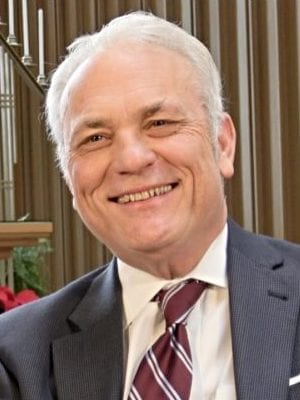
Nowhere is the sense of community stronger than in our public schools. Each day, our children walk through the doors of their public school free-of-charge, and day after day their social, emotional, and academic skills grow.
One of the things that makes America great is our willingness to help each other and support our communities. Whether one acknowledges it or not, we depend on each other in all aspects of life.
When the business down the street succeeds, that is good for our community. When a senior citizen receives quality healthcare, that is good for our community. And when a child graduates from school with the skills needed to contribute to our society, that is good for our community.
We are a community. We take care of each other. Together we are stronger.
This benefits all members of our society, whether they have students in school or not. When students succeed, that success benefits us all.
Our public, tax-payer dollars fund these schools, and all children, regardless of background, are provided the opportunity to attend each day. They grow and mature, and eventually become successful members of our community.
Public schools are not perfect. Teachers, principals, and other administrators are not perfect.
But, despite recent unfounded hysteria, most adults working in public schools have dedicated their lives to serving all children, regardless of background. Our public school educators work tirelessly to serve our students, and therefore, our communities as a whole.
We acknowledge that spending alone does not improve our school system. However, in recent years, state government leaders have increasingly pushed an anti-public-school agenda.
This is seen most prevalently in their support for private school voucher programs. They argue that the opportunity to “choose” a school empowers parents and provides positive academic results.
However, deeper scrutiny of “school choice” systems reveal that these unregulated schools lead to instability, financial inefficiency, and mismanagement. They often are staffed with uncertified teachers who teach a substandard curriculum. Furthermore, the admissions process of private schools allows them to pick and choose their students, leaving our most vulnerable students out in the cold.
Public schools serve all students, regardless of background. They are staffed with experienced teachers and staff who care about our children, who teach a curriculum developed and assessed by our state government.
They exist in urban, suburban, and rural communities. When compared to voucher schools, they are remarkably stable, successful, and financially efficient even with limited resources.
Despite an unprecedented national anti-public-school campaign, orchestrated and funded by powerful political forces, polls show parents are satisfied with the education their child receives in public schools. Vouchers are not the answer. Reasons abound.
First, private schools are very selective in their choice of students. If they are adequate at all, they are unlikely to take a poor or at-risk child.
Second, the difference in the amount of the voucher and the cost of the private school is so great, poor families will not be able to afford the private school. Therefore, the voucher becomes a subsidy for affluent families who can afford the private school.
Third, there is no public accountability over private and home schools, opening them to mismanagement and fraud. Fourth, private schools force special needs students to waive their constitutionally protected rights.
But the greatest reason vouchers are wrong is that they use public money to advance religious causes, a violation of God’s law of religious liberty—and its famous corollary written by James Madison in the immortal words of the First Amendment to the United States Constitution: “Congress shall make no law respecting an establishment of religion or prohibiting the free exercise thereof.”
Simply put, state governments have no busy meddling in the voluntary assemblies of church and religious schools.
The 2023 Texas Legislature is operating with a record-breaking $32.7 billion surplus. We have the unique opportunity to invest in our public school system, which benefits all students, all communities, and our society.
Instead of investing in an unregulated, unstable, and unproven voucher system, we suggest that Texas use this surplus to increase its statewide funding for local districts to, at a minimum, the national average. This, in turn, will allow public schools across the state to raise teacher pay, offer more extracurricular activities, provide state-of-the-art facilities, and offer greater services for students with disabilities.
History has shown us time and time again that the future of our great nation is best served when we invest public money into public schools for all children—not in vouchers for a few. As pastors and leaders in our community, we call upon our state governments to do what is best for all our children, both now and into the future.
Editor’s note: This article is part of a series for Public Schools Week (February 27 – March 3). The previous articles in the series are:
Strong Public Schools Fight Christian Nationalism| Jennifer Hawks
How Making Sand Mandalas Is Like Teaching| Trevor Barton
Public Education in the Wake of COVID-19| David Wilkerson
Charles Foster Johnson is pastor of Bread in Fort Worth, Texas, and founder and executive director of Pastors for Children, a nationwide network of faith leaders mobilized for public education ministry and advocacy.

